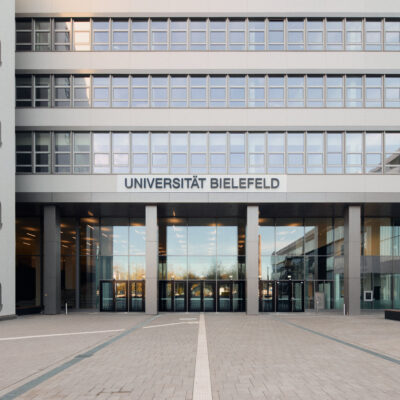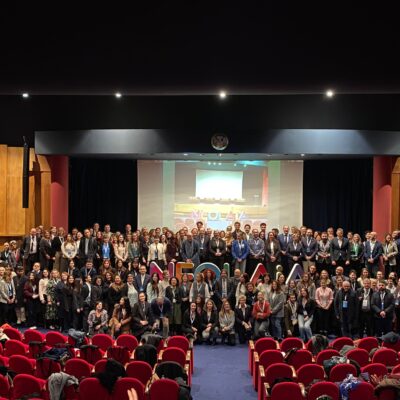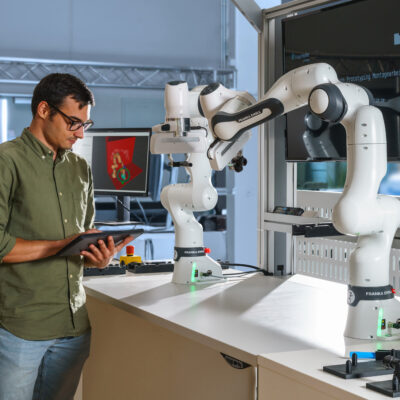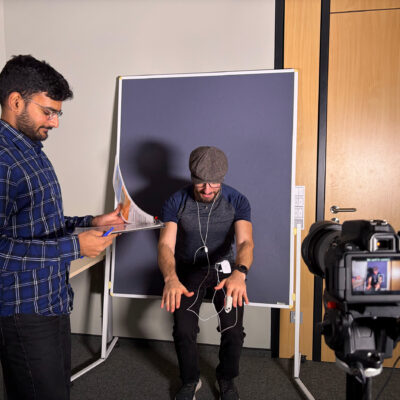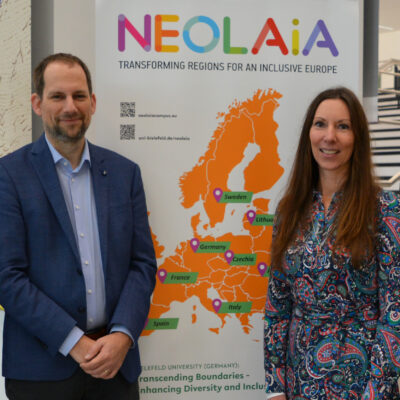At the beginning of February, around 150 representatives of the universities participating in the European University NEOLAiA convened for the kick-off at the BeVenue Conference Centre (VBO FEB) in Brussels (Belgium). Representatives of the university management, administration, and student representatives from Bielefeld University were also present. This gathering marked the start of the nine participating European partners’ joint NEOLAiA journey under the banner ‘Transforming Regions for an Inclusive Europe’.
Bielefeld University, the University of Jaén (Spain), the University of Nicosia (Cyprus), Örebro University (Sweden), the University of Ostrava (Czech Republic), the University of Salerno (Italy), Ştefan-cel-Mare University of Suceava (Romania), the University of Tours (France), and Šiauliai State University of Applied Sciences (Lithuania) collectively comprise the European University NEOLAiA since 2023 and represent a broad spectrum of academic excellence.
‘We are delighted that we can now embark on this NEOLAiA journey together with our European partners. As different as we are as individual European universities, we are united in the common idea of promoting an inclusive Europe and wanting to have an impact in our respective regions,’ says Professor Dr Angelika Epple, rector of the university and, together with Chancellor Dr Stephan Becker, a member of NEOLAiA’s Governing Board.
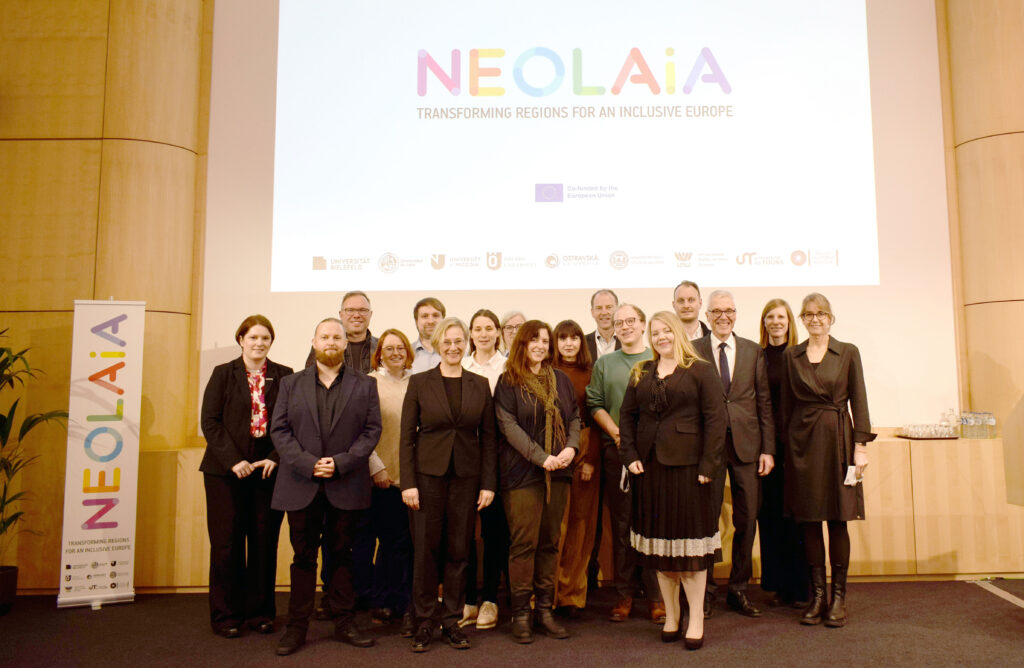
© NEOLAiA/Guillermo Domínguez Fernández
Broad agenda and focused discussions
The two-day event in Brussels was packed with activities and initial exchange sessions to facilitate collaboration and lay the cornerstone for the success of the NEOLAiA project. On the first day, the rectors of the University of Jaén and the University of Örebro welcomed the guests from all participating European universities. A plenary session followed with presentations on the background, leadership, structure, and key action areas of the NEOLAiA project.
The agenda also included the presentation of the Work Packages, the central components of the project’s operational framework. Various sessions were organized to cater for the different stakeholder groups. These include the Governing Board, Steering Committee, Executive Committee, Student Advisory Group, Work Package Delegates, Associated Partners, and External Stakeholders. These sessions gave the participants the opportunity to coordinate their visions, exchange insights, and identify initial steps for collaboration.
In the evening of the first day, university representatives also met with external guests including permanent representations of individual participating countries to the European Union in Brussels.
Day two of the conference was largely dedicated to focused discussions in the Work Package sessions. The heads of the individual Work Packages briefed delegates on the schedule and objectives, strove for a deeper understanding and commitment to the project initiatives, and discussed upcoming activities in detail. These include initial joint projects such as a symposium on language policy; joint exchange, learning, and teaching formats; and digital platforms on which the NEOLAiA partners will work and that they can use to have an impact in their respective regions and engage in dialogue.
A separate session for the student representatives from all participating universities acknowledged their pivotal role in shaping NEOLAiA. Bielefeld’s student representatives are Lena Bartsch, chair of AStA [Student Union], and Simon Heyder, student representative in the Senate.
The conference concluded with a wrap-up session for the Steering Committee and the Executive Committee to reflect on the key findings and set the course for future milestones.
The project’s first kick-off meeting epitomized what NEOLAiA stands for: the power of collaboration to advance lifelong learning initiatives. NEOLAiA is committed to stimulating innovation, fostering inclusive education, and empowering people across Europe and beyond—driven by diverse perspectives and expertise. Returning to their universities after this initial kick-off, the representatives will gradually begin to implement the planned activities.
